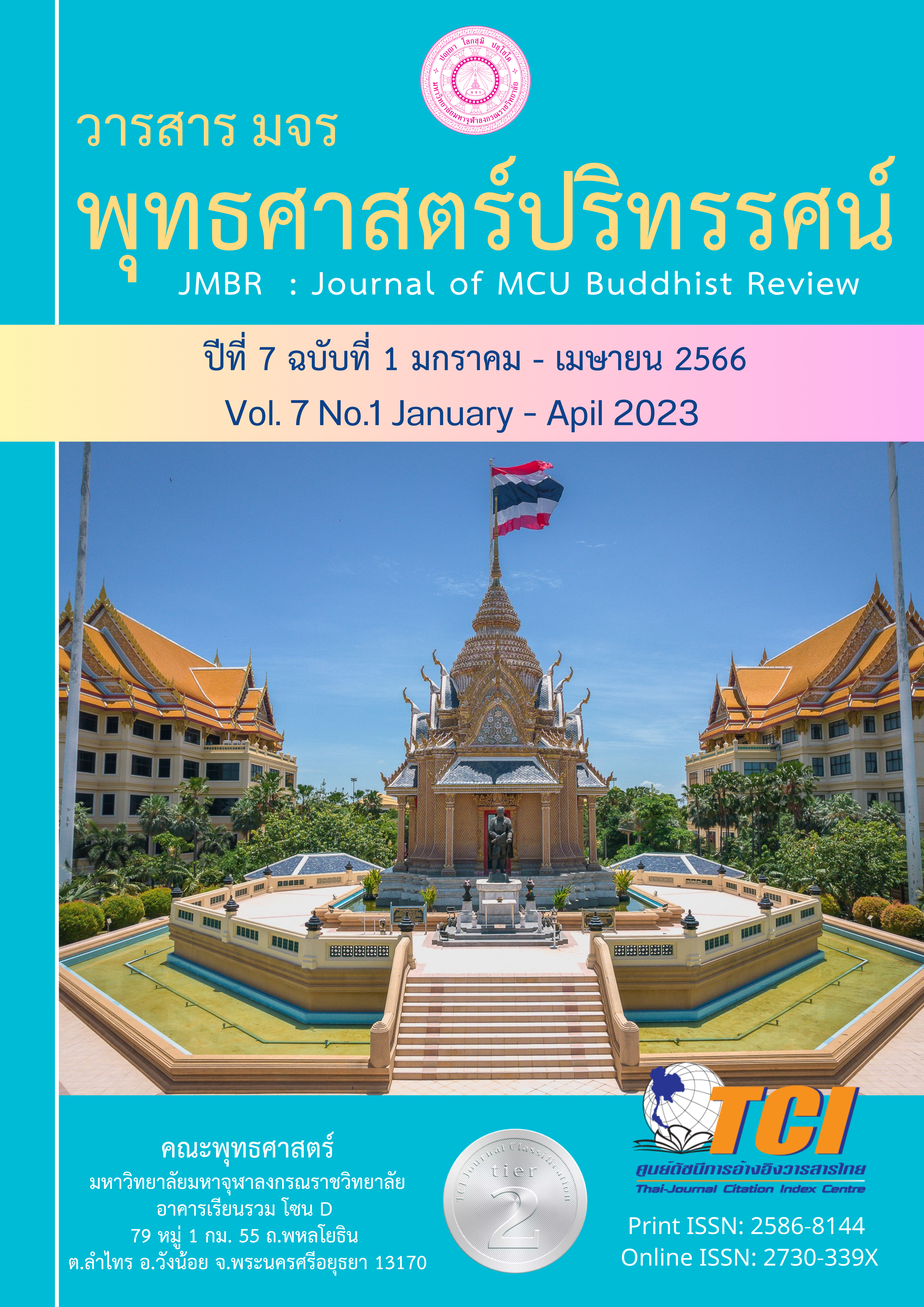(The article has been suspended or withdrawn) Wat Phra Chetuphon Vimolmangklararm: Creative Arts for Cultural Enhancement
Main Article Content
บทคัดย่อ
This article has been withdrawn at the request of the article owner. Reason for withdrawal: Because the referenced sources or information obtained are not comprehensive or diverse, or are not clearly defined, the data analysis or recommendations may be incorrect or may cause misunderstanding. The article owner and the journal therefore request to withdraw the article and suspend its publication. Do not reference any information from this article.
Wat Phra Chetuphon Vimolmangklararm, or Wat Pho, is a prominent Buddhist monastery in Bangkok, Thailand, with historical and cultural importance. However, the site faces challenges in preserving its cultural relevance as a tourist attraction. This study explores the potential of creative arts, including visual arts, music, theater, and dance, to enhance the cultural value of Wat Pho and provide unique experiences for tourists. The primary focus is on how creative arts can deepen visitors' understanding and appreciation of Wat Pho's historical and cultural significance, thereby enriching their experiences.
A comprehensive and collaborative strategy involving artists, cultural institutions, local communities, and other stakeholders is crucial to harness the potential of creative arts in promoting Wat Pho. By working together, these stakeholders can create innovative approaches to showcase Wat Pho's heritage, ensuring authenticity and integrity while augmenting the visitor experience. Creative arts can make a significant contribution to Wat Pho's cultural value by offering novel insights and fostering emotional connections. By encouraging deeper engagement with the site's history and traditions, creative arts enrich the visitor experience at Wat Pho and serve as a catalyst for broader cultural understanding and appreciation. The creative arts and Wat Pho both play significant roles in enhancing and preserving Thai culture. Through various means, they contribute to the expression, development, and dissemination of cultural values and traditions.
Article Details

อนุญาตภายใต้เงื่อนไข Creative Commons Attribution-NonCommercial-NoDerivatives 4.0 International License.
- บทความที่ได้รับการตีพิมพ์เป็นลิขสิทธิ์ของวารสาร มจร พุทธศาสตร์ปริทรรศน์
- ข้อความใดๆ ที่ปรากฎในบทความที่ได้รับการตีพิมพ์ในวารสาร ถือเป็นความรับผิดชอบของผู้เขียนบทความ และข้อคิดเห็นนั้นไม่ถือว่าเป็นทัศนะและความรับผิดชอบของกองบรรณาธิการวารสาร มจร พุทธศาสตร์ปริทรรศน์
เอกสารอ้างอิง
Buckley, R. & Zhong, L. (2016). Activating cultural heritage: An exploratory study of the use of creative arts in cultural heritage visitor experiences. Current Issues in Tourism. 19(2), 208-224. https://doi.org/10.1080/13683500.2014.929873
Chon, K. (2011). Cultural tourism: An assessment of the role of cultural heritage in tourism development. Tourism Management. 32(3), 554-564. https://doi.org/10.1016/ j.tour man.2010.06.014
Feser, E. J. (2015). The impact of cultural heritage on tourism. Routledge.
Gombrich, R. (2006). The Theravada Buddhist tradition: A historical, cultural, and political analysis. Cambridge University Press.
Hall, C. M. & Sharpley, R. (2015). Tourism and cultural heritage: An overview. Routledge.
Harris, E. J. (2006). Theravada Buddhism and the British Encounter: Religious, Missionary, and Colonial Experience in Nineteenth Century Sri Lanka. Routledge.
Higham, J. & Moseley, R. (2010). Re-imagining cultural heritage. In Re-imagining the Museum. Routledge.
Koens, K. (2011). Creative tourism: An exploratory study of the potential of creative tourism for rural development. Journal of Sustainable Tourism. 19(4), 425-447. https://doi.org/10.1080/09669582.2011.572676
Moscardo, G. (2015). The role of creative and cultural industries in sustainable tourism development. Routledge.
Norman, K. R. (2000). A history of Theravada Buddhism in South-East Asia: With special reference to India and Ceylon. Motilal Banarsidass Publ.
Smith, V. L. (2015). Cultural heritage tourism. Routledge.
Teixeira, R. & Costa, C. (2015). The role of cultural heritage in sustainable tourism development: A case study of the historic centre of Évora, Portugal. Journal of Sustainable Tourism. 23(4), 467-487. https://doi.org/10.1080/09669582.2014.9319 53
Timothy, D. J. & Nyaupane, G. P. (2009). Creative tourism and cultural heritage: A new perspective. International Journal of Heritage Studies. 15(3), 237-254. https://doi.org /10.1080/13527250902890749
Yoon, Y. (2002). An analysis of the effects of cultural attractions on tourist behavior. Annals of Tourism Research. 29(1), 78-102. https://doi.org/10.1016/S0160-7383(01)00061-8


